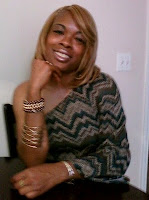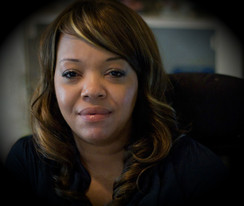Authors, Magazine Editors, eZine writers & Newsletter owners: Are you gearing up for holiday specials and promotions? Make your book/magazine/newsletter cover come ALIVE with a 3D cover! Go to http://www.mitchell-productions.com/specials
Book (51)
Defining success is like trying to glue water to sand. It’s impossible! That’s because it is so subjective! One’s definition of success is oftentimes based upon material things instead of emotional well-being and a clear sense of self. For the writer, this gets even tighter in regard to the former because to the publishing industry, your/their success is determined by book sales and bestseller rankings. I want to share with you five (5) “must-do’s” for success regardless of the publishing path you decide to take be it with a traditional publisher or self-publishing. I heard an agent speak about a few of these “must-do’s” and have added one or two of my own. The bottom line, for me at least, is to always keep my intentions for the work in perspective, and to remember that my writing is a reflection of me.
- Make sure your story is GREAT
- Edit, edit, edit (hire a developmental editor, line editor and proofreader)
- Create a killer book cover (yes, a beautiful, professional cover is imperative – it must match the storyline)
- Tune up your marketing skills (i.e., yes, you must engage in social media & know your platform)
- Commit to quality (see all of the above; this also includes format, design and paper quality)
For more tips on being an authentic, successful writer, read “5 Takeaways” or “The Key to a Successful Self-Publishing Career.” Check out The Pierce Agency, LLC for a FREE 20 minute author consultation.
Do you dream of having a book published, but don’t know where to turn? Already have a book, but unsure of how to promote it? Looking for cost effective high-return strategies to market your book? If you answered yes to any of these questions, then the following information is for you.
Many writers and aspiring authors are under the mistaken belief if their book is published by a publishing house they can sit back and watch sales miraculously happen. Nothing could be further from the truth. Fact is, competition to have your manuscript noticed and published by a large house is extremely fierce. Additionally, no matter who publishes your book, you absolutely must take an active roll in marketing, promoting and selling your book.
Moreover, profit margins are not extremely good when you go through a publisher. Sure, if you sell tens of thousands or hundreds of thousands of books, you make substantial amounts of money. In reality only a small percentage of writers achieve this level of success.
A great model for achieving success is to self-publish and actively promote your book. Self-publishing is one of the best ways to get your manuscript to market quickly is to. Another great benefit of self-publishing is you have complete control of the creative process. You make the decisions on content, editing, cover design, title and you reap the profits.
A primary downside with self publishing are costs involved. Depending on whether or not you hire an editor, designer, layout person and cost of printing, the initial outlay for self-publishing a book can be several thousands of dollars for the first run. Besides there are no guarantees your book will sell. However, you can lessen your risk of costs and increase your level of sales with a simple formula.
Imagine if you could self publish with no out of pocket money. Additionally, imagine gaining lots of free publicity and visibility in your market at the same time. I know this to be true, because I have done it.
Here is how you will benefit with my proven technique:
Keep control. Maintain complete creative control and own your copyright with our non-exclusive agreement.
Get to market fast. Have your work published and available quickly.
Distribute globally. Reach readers worldwide by making your book available on Amazon.com and Amazon's European websites.
Earn high royalties. Set your list price and receive industry-leading royalties.
Publish easily. Use free tools to build and publish your book.
If you need help with formatting, professional book cover, website design and marketing services JW Business Start-Up Solutions can assist you with publishing your book.
As posted on Denene Millner's "My Brown Baby" on November 5, 2012. See full post here.
Author: Akilah S. Richards
How is it that, according to the U.S. Bureau of Labor and Statistics, our percentage of business ownership as black women in the U.S. is up 59 percent since 2002, yet we make up a mere 3 percent of the $1.2 billion dollars in sales from women-owned businesses?
Unjust systems and long-standing, deliberately placed hurdles aside, many of us are learning to maneuver this new era of social impact through technology, and leveraging our skills with our passions to the tune of thriving businesses and comfortable lifestyles.
But on the real, the numbers of us who hoist sails on sinking ships with unstable businesses far surpass the number of financially and emotionally stable black women business owners.
Certainly, we do not lack access to the resources or the brainpower it takes to excel in business—so what’s the deal?
Business and Life Strategist Katrina M. Harrell and I have got a theory about these troubling truths. It might ruffle your feathers a bit, but perhaps that’s a necessary part of your growth and ours.
The theory: Black women in business have been B.I.T.C.H.ing up, big time!
Yes, we BITCH up! We get scared. We stop trusting ourselves. We take the shortcuts and we prioritize popularity over business ownership. Many of us, myself included, spent years building a “popular brand”, without focusing on operating a business.
The results: High visibility, but low income. Some success, but no real fulfillment.
I was a slave to the very thing I had built. But thankfully, I got free.
READ MORE HERE...POWERFUL READ.
I speak to authors regularly to help them organize their writing and create publishing plans that fit their goals and economic status. While one of the biggest barriers to self-publishing is usually funds, the second usually is lack of information or research. Traditional publishing is nice if you have the patience for it and don't mind letting someone else take over, but for those who like be in charge here are a few good reasons to self-publish, as well as some major pitfalls.
5. No Rejections! This is one that resonates with every author. No one likes to be told no, especially if there is not a clearly identifiable problem with your manuscript. While this is a perfectly good reason to go the self-publishing route, which will ensure your publication, rejections are a motivation for some authors to improve on their work.
Pitfall: Without an honest, third-party assessment of your manuscript before publishing, you can end up with a sub-par product that destroys your reputation as an author.
How to Avoid It: Find a professional editor to provide you with honest feedback. Some have a process for this type of review, while others charge an hourly fee. The goal is to not only get feedback, but also suggestions on how to resolve your issues. Companies like EverFaith Press provide a Rubric with their manuscript assessments which allow you to see your problem areas and how you can fix them.
4. Editorial Control. This perk of self-publishing is great for authors who like to be in the know. You have the ability to interview and select your own editor, or at least set the parameters for success and their interaction with you.
Pitfalls: Selecting the wrong editor by going for the lowest cost only. Another big mistake is ignoring your editor. If you have selected your editor wisely, it is important that you take the time to weigh and value their input.
How to Avoid It: First, make sure that you request a sample edit. Any editor that takes on your book without first reviewing your manuscript is no one you should work with. They need to see your manuscript to determine if they can help you or not. Second. when selecting your editor, have a conversation with them about their editing style and how they work with authors. Vibes are not sufficient, but if you combine your "personality assessment" with their assessment of your manuscript and sample edit, you will have all of the pieces needed to make an educated decision.
3. Design Input. Many traditional publishers work on your design for you, and your input is limited if allowed at all. When self-publishing, depending on how you go about it, you are able to veto covers you do not like and creative control over the design concepts.
Pitfall: Design input is only a plus if you have options and are working with a skilled designer. Using a self-publishing press can be a benefit here, because they typically make deals with quality designers based on book quantities to get you the best pricing. When approaching the same or similar designer, your costs can triple and push you towards a cheaper more sub-par choice.
How to Avoid It: Look for promotional specials when you review the work of graphic designers, and make sure that they have experience with creating at least 5 book covers for print publications. Don't hesitate to interview them, and if you really don't have the time to do the legwork then visit small presses like EverFaith Press and Believers Press. They both have contractors who can provide sample work from established designers for you to choose from.
2. Higher Royalties. It's good to get paid, and it's even better when you can set your own rates. This is the number 2 best reason to self-publish, because you see an immediate return on your investment. It takes a while to recoup the publishing costs, but to many authors it's worth it.
Pitfalls: There are four major pitfalls here 1. Not setting your own royalty rate, 2. Setting your rate too high to reinvest in your work, 3. Not setting your royalties aside for personal use and 4. Not using the book revenue to reinvest.
How to Avoid It: Being a smart business person is one of the key skills you will need to be a successful authorpreneur, but it's not something you can learn overnight. The quick lesson (or reminder) is that you have to both pay yourself and set money aside to further your book marketing plans. Creating your own contract to set your royalty rate lets you make a little money back from your work, while reasonably setting aside the remainder for a business account. You can save that money and use it invest in any future book plans that you may have.
1. Access to Final Files. There are no major pitfalls here, and honestly It's the most important reason to self-publish carefully. Many companies are happy for you to pay them to produce your work, and are only satisfied if they can keep you coming back for more. They force your hand by not providing you with your final files so you have to go through their more expensive channels for any print needs. EverFaith Press has the advantage on most self-publishing companies here, as it is in their standard agreement to provide the final files to their authors. They keep you coming back because their print costs are one of the cheapest in the POD world, and the turnaround time is phenomenal.
Pitfalls: If you do get a copy of your final files, make sure not to corrupt it! If you do not have the knowledge of InDesign or whatever layout tool they use, do not try to figure it out using your file. If you destroy it, you most likely will need to pay to have it recreated.
How to Avoid It: Maintain a back-up copy of all publication files, then make a back-up of your back-up. Preferably, you should store your files on a Cloud drive and on an external drive. This protects your investment and ensures that you have a copy of all final files for future changes or editions.
These are just a few good reasons to self-publish, and there are many reasons to traditionally publish as well. In the end it is up to you the author to decide what will work best for you.
Have you been published, or self-published your own book? What helped you to make your decision? Share your answers below!
Rochelle Carter is the President/CEO of Ellechor Media, LLC. Ellechor is a Christian media company with three imprints: Ellechor Publishing House- a publisher of Inspirational Christian books, EverFaith Press- a self-publishing imprint offering Coach2Publish, Publishing & Marketing Services, and E2 Books & Co.- an eBook only imprint. She also blogs marketing, publishing and writing tips twice weekly at The Savvy Authorpreneur and runs Christian Books Today- a community for Christian book readers and authors, featuring an independent bookstore.
Every speaker and author is told they must have a “PLATFORM.”
What exactly does that mean????
A platform is just your key message. It is the position and influence you have on a subject that is informative, interesting, inspiring and thought-provoking.
Your platform is the message that you STAND ON that reaches your core audience. It is your calling, your charge.
Your platform is the message you STAND FOR that gets people to move, take action, rally behind and/or solve a problem. It’s BIGGER than YOU!
A platform is like a “movement.” It is like a mission – and you feel you’ve been assigned to promote it.
What does an established platform look like?
1. You generate excitement/energy to an audience
2. You have attracted national media attention, have star
power or the “celebrity factor” – ready for the Red Carpet.
3. You are often quoted and looked upon as an expert by peers
4. You are sought-out to deliver keynote presentations or workshops or consult with “A” list clients / corporations
5. You have created a fan-base that promotes your message to others that gives you referrals
6. You have a large database, social media following and strong brand presence in the marketplace
WHEW!
Now that we know what a “Platform” is and what a successful platform looks like, let’s look at how to build your platform for your book or your speaking career.
Here’s how to establish a platform:
- Brand. Look like where you want to go. Have the look of “celebrity.” Have a professional photo shoot. Hire an image consultant. Let’s be real: lose weight if you have to – image is everything.
- Have a spectacular biography. List your awards, activities, media hits, add testimonials and your photo to the bio sheet. This is called a “one sheet.” (see Candace’s above) I have launched many speakers careers by writing bios that became their “ticket” to where they needed to go – even before their book was published. I crafted their “speaking topics” and secured “A -list” endorsements. This was the foundation of their careers and they still use it to this day.
- Speak, give workshops, seminars. Volunteer your times at churches, schools or hospitals. No one is calling to PAY you to speak YET, so speak for free! Just get shots of you in action and video.
- Write. Yes, you hear that you need a platform to publish a book – but in reality a book can establish your platform. It’s easy to self-publish these days. Go to www.essence-publishing.com and get a free publishing kit. And if you need help, hire a ghost writer or a book coach.
- Pitch yourself to the media as an expert. Contact radio, TV, newspapers or magazines and offer your expertise. A quick way to get exposure is to regularly call-in to talk shows and join the conversation. You can get to know the producers of the shows that way. If you are afraid to “sell” yourself – get a PR coach to help bolster your confidence and tell you what to say.
- Write Op/Ed (opinion editorials) or columns for your local newspaper or regional magazine. Make sure your byline includes your “spectacular bio,” links and contact information.
- Host your own conference, community outreach event or mini-seminar series. Invite other expert speakers that will help “validate” your platform. Make the event FREE so you pack in as many people as possible to showcase your skill. Make sure you alert the media. Because the event is free, pitch a public service announcement (PSA) to broadcast stations. Get listings in the daily newspapers.
- Secure a leadership position in a non-profit. Offer your expertise to the organization pro-bono and ask for letters of reference, testimonials and referrals.
- Blog! Grow your social media following. Become a thought-leader by sharing your thoughts online. Dive into Facebook (set up a ‘fan’ page) and Twitter and connect them to your blog. Make sure you are delivering value and offering solutions to problems. Search out other blogs to guest blog too.
- People have to hear you and see you. Set up a Youtube channel and post up videos of yourself in action. Post up videos of those who have heard your presentations too. Promote your videos via your social media channels such as Twitter, Facebook and Linkedin.
- Podcast. Become a radio show host on Blogtalkradio. Interview other experts in your field and promote the podcast on your blog and syndicate it for free iTunes. Get an account at Cincast deliver messages anytime, anywhere across the internet.
- Build a database. This is hub of your platform. Make sure you build an email database and regularly communicate with them via an email newsletter. Drive traffic to your website/blogsite from your social media sites and capture their email addresses by offering a “free” gift that is representative of your brand. This should be a free gift that is so convincing of your expertise that they will stay connected to you over time and eventually become a “raving fan.”
- Joint venture and partner with others. Do teleseminars or webinars with other speakers/authors that compliment your platform. This is a good way to get exposure to a new audience. You promote them to your audience and they promote you to theirs. Win-win synergy
Bottom line: in order to have an established platform – you need numbers and influence. The more exposure you have, the greater opportunity for others to really know, like and trust you. Once you have their trust, they will spread the message of your platform to others. And word of mouth is still the best form of advertising.
It’s all about people and how you are positioned to make difference to make an impact in people’s lives. It’s ministry really. See www.LaunchLikeaSuperstar.com
See www.PamPerryPRCoach.com too for free MP3 and www.ChocolatePagesNetwork.com! (FREE social network for authors)
Pam Perry, is a PR coach, social media strategist, co-founder Perry + Williams and chief visionary at Ministry Marketing Solutions Inc. in Farmington, Mich.
Visit her at www.MinistryMarketingSolutions.com and get her podcasts on Blogtalkradio too!
Last week I published a blog post, Blogging Tips: How to Blog Your Way to Writing a Book. I wrote about the process that I used to write the content of my upcoming book from a series of blog posts. I received a comment from a reader named, Tamara who said,
“Congrats on finishing your manuscript! I love the concept of blogging your way to publishing a book. I am a dessert blogger, so my question is do you think this can work for me too? I already have a few concepts in mind for cookbooks, but I think recipe development is key for me as opposed to writing lengthy blog posts. What are your thoughts?”
Tamara also left a similar comment on my Facebook business page, so I answered it there. As I was thinking of a response I got the idea for a blog post because there may be others of you out there who are thinking about using your blog to help you come up with the content for a book.
Here is our exchange on Facebook:
Now here are five practical tips for blogging your way to writing a book:
1. Announce your intention to write a book on your blog
Announcing your intention of writing a book publicly on your blog serves several purposes at once. It creates a sense of accountability. Now that you’ve announced it publicly, you better believe that your readers are going to ask you about how it’s going, and it makes the project more real to you and that might motivate you to stick with it until it is finished.
2. Blog about the theme of your book
If you are working with a publisher, then you’ve already done the work of creating a book proposal for your project. Now you will tailor your blog posts to fit in with the outline of the book. You will not be writing the entire book—word for word—on your blog. You will still have additional sections to write outside of the blog, but if you are having trouble finding time to fit writing a book into your crazy schedule, Read More. . .
LOVE iS BLIND
Click on the button to read her exclusive interview:

Have a book or aspire to publish your book but are stuck as to the marketing tactics to use to expose it to the masses for increased sales?
Maybe you start off with a bang only to end with a fizz due to disempowering behaviors and habits?
We are coming into the last month of 2011…. BUT Wait! Before you dare speak about wrapping up the year NOW is not the time to snooze.
To: Spiritually Minded Women Entrepreneurs, Small Business Owners, WAHW, WAHM, Authors and Online Marketers
If you really want to know how to attract, get and retain prospects, clients and customers, whether you’re an author, coach, consultant, woman entrepreneur, speaker or aspiring you need to learn how to do this effectively.
This is not just something left to the Guru’s this is something that you can learn and apply.
I did it and you can too! I’ve invested thousands in the knowledge that I have and of course I’ve sought out God’s wisdom because “Wisdom tells Knowledge what to do!”
Are you going to continue hopin’ and a wishin’ or step up and out in Faith to manifest your desired results? Will you continue watching as others succeed, twiddling your thumbs and having a pity party or will you finally get up and take targeted, strategic and focused action.
I’m taking away the excuse that you can’t afford it. Here’s a little word of advice “remove the words I can’t afford it from your talk.” Replace it with something more affirming and positive. Your subconscious mind moves on your thoughts, actions and what you speak.
This special is such an incredible of.fer you’d have to really try very hard to ignore it.
Besides, God’s gift to you is life and what you do with it is your Gift to Him. Now is not the time to wrap up the year or embrace a scarcity mindset. I believe that we should maximize life everyday!
This is where you can separate the successful from the wanna bes or those living in the woulda, coulda, shoulda zone.
I’m writing you to let you in on a very special opportunity for you to upgrade your business.
Stop the overwhelm, frustration, lack of confidence, fear and more!
I have a very special offer for Fast Action Taking Decisive Women.
A strong book cover is a necessity when it comes to publishing a High Quality book. As much as we may not like it, books are judged by their cover! According to ‘The Wall Street Journal’, “The average bookstore browser who picks up a book spends eight seconds looking at the front cover and 15 seconds reading the back.”
Therefore, the window of opportunity to sell the book by its cover is limited. To attract attention and make a lasting first impression, be ready to do all that you can to be at the top of your game and make that first impression one that last in the mind of the viewer.
Read More: http://wattspublishinggroup.com/the-benefits-of-strong-book-cover-design/

Today with all of the amazing technology, self publishing a book has become a more attractive option. Gone are the days of someone’s dreams and visions being placed on hold or forced to wait because they are in search of a publisher to accept their book. I remember hearing so many stories of how many attempts, how many companies, and how many rejections it would take before an author could get published. I don’t know about you but I always had this image in my mind of traditional publishers sitting on a throne deciding the fate of the literary world. To me it was like a secret society that allowed a select few to enter and those that did had very little control.
Today that image has changed for me. When I set out to publish my first book, going the traditional route was not a consideration. “Why?” you might ask. As I alluded to earlier technology has revolutionized the publishing world. The internet along with the social media platforms have empowered and given a voice to so many talented authors; many of whom would never have received even a rejection letter from a traditional publisher. Traditional publishers, like so many industries because of technology, have been forced to develop new business models. Major publishers are faced with downsizing and cut backs making it even more difficult for a new kid on the block. Most of the traditional publishers today want authors who have a celebrity size following or a distribution list that equates to immediate ROI.
There are a lot of opportunities in self publishing a book. You can do it completely yourself. When you publish your work yourself you are responsible for the editing, formatting, securing distribution, communicating with the printer, and copyrighting it to name a few. The other option is selecting a publisher that will handle all the previously mentioned items, but allows you to remain in control. If you are a writer and perhaps run another business, the latter option would more than likely be the most beneficial for you. Here are top 5 things you should consider when looking for a self-publishing publisher:
1. Is it a good fit?
Believe it or not personality means everything. Your book is your baby. It’s a project and not a drive-thru menu experience. Ask yourself, “Are you comfortable with their style of communication?” I know its cliché, but communication is the key to everything. Does the publisher make you feel like you are valued and not just a number? Is there a real interest in your project? What’s your publisher’s background? Many times I have seen authors when self publishing their book forfeit the importance of literary and business experience of their publisher. Make sure when selecting a publisher they have literary experience and business acumen.
2. Make sure you maintain all your rights.
In the traditional world of publishing you generally give up a large portion, if not all of the rights to your book. This means all of the control on editing, characters, book cover design, etc, are determined by the publisher. This is primarily because you have received an advance for your book. When you are self publishing a book there are publishers who cater to authors who desire to self publish. In this case if you are not receiving an advance you should maintain all the rights to your book. All of the decisions from editing to the book cover design as mentioned before should be your final say. You should also have the option of taking your book with you if you decided to leave that publisher.
3. Royalties
When self publishing a book it is my opinion that you as the author should receive the higher percentage of royalties. In the traditional world it can be viewed slightly different because they have a larger distribution, they have provided you with an advance, and there is more at stake. There are some self publishers who will do a 90/10, 75/25, or 60/40 split, with you receiving the lower percentage. In this case I would make sure you get the higher, because there is no upfront investment in you from the self publishing publisher.
4. What type of services do they offer?
Do they offer various editing services from rewrite to copywriting? Editing is extremely important when self publishing a book. Be mindful of a company that will publish your book that doesn’t offer or require editing. In most cases if they don’t offer editing, your publisher should have a list of editors they can refer. It is true today with technology and a fast paced society the standard grammar has become more relaxed. However, you still want a quality product that will stand the test of time. Other services you should look for are marketing that includes social media, graphic and website design.
When self publishing a book often authors assume the publisher is automatically going to promote your book. This is not the case. You as the author should have an option of acquiring those additional services.
5. Time
Yes, I know everything is done at the speed of light today. We no longer have to wait on the 6 o’clock news to find out what’s happening around the world. We can email a document that used to have to travel by what we now have labeled “snail mail”. Although this has made our lives easier, when self publishing a book, we still want to value the time it takes to create a quality product. Again, self publishing should not mean you should compromise and produce an inferior product. That’s what the big guys and critics expect and/or automatically assume. I have seen companies that promote one to two week turn-rounds. That might be the case. However, please allow yourself the time for editing, correct formatting, the right cover design, to receive a proof (an actual copy of your book), etc. A reasonable amount of time should be 60 to 90 days, but this is determined by so many variables. How long it takes you to submit your work, and to sign off. You may realize that an entire chapter needs to be deleted. Allow for creativity which is often something that shouldn’t be rushed. Remember experts say today a book is the new business card. What do you want yours to say?
Deborah Hardnett is the Founder and CEO of Wealthy Sistas® Publishing House. Wealthy Sistas® Publishing House focus is to help authors self publish their books. If you are considering self publishing a book, visit www.wealthysistaspublishing.com Wealthy Sistas® Publishing House website today and get more details on how you can achieve this without the exorbitant fees and retain all your rights to your intellectual property. Deborah and her staff are strong advocates of the self-publishing industry and offer an extensive variety self publishing book services.
- Publishing professionals (e.g., your editor, publicist, or agent)
- Booksellers in your genre
- Other writers
- Members of industry or trade organizations to which you belong
- Media personalities (e.g., reporters, radio hosts, or producers)
The Author Power Team
As an author, you are always on the lookout for new ways to improve your marketing strategy and grow your platform. One of the best ways to do this is by developing your power team.
What’s a power team? A familiar term among business networking professionals, a power team is comprised of individuals and/or businesses with whom you share common goals or a common client base.
How can it help you as an author? The members of your power team can help you improve your strategy, connect with more readers, identify more opportunities, hone your message, and expand your reach.
Let’s look at key members of an author power team and how they help you build your career.
- Publisher: Your publisher is an industry insider. If you have chosen wisely, your publisher should have a track record of producing successful books in your genre and should be able to provide you with tips and insights to help you get on bookshelves and in front of readers. Keep your contacts at the publisher in the loop so they are aware of all of your marketing and publicity efforts. This helps them keep your book stocked when and where it needs to be available. They can also give you feedback on publishing best practices.
- Publicist: A publicist helps you develop your marketing strategy and puts you in front of big media—radio, television, print, and online. A publicist also helps you hone your message and clarify your brand so you can reach readers. They have spent years cultivating relationships with media and industry professionals and have access to contacts you may not be able to reach on your own.
- Other Authors in Your Genre: Wait—they’re your competition, right? Not necessarily. If you have differentiated yourself well, your work will stand out when compared to other authors’ work. Each author has something unique to give to the reader, but authors in the same genre share the same audience and are marketing to the same people. If you have been growing your platform and marketing your book, you should already have a following. Pull your efforts together with another author doing the same and you can double the strength of your platform and gain twice the reach.
- Bloggers: Bloggers who write about your topic or genre also share face time with your audience. They often have an open dialogue with a following that listens to their advice and trusts their recommendations. Develop relationships with bloggers in your category and offer to write guest posts, send them a free review copy of your book, share links, or come up with cross-promotional activities.
- Industry Gurus: No matter what topic or genre your book covers, there will be some movers and shakers already commanding a strong following in the same area. Cultivate a relationship with these people. They’re connected and know what your readers are looking for. They can get you into events and speaking engagements that will put you directly in front of your target audience.
These are the primary members of your power team, but don’t be afraid to think outside the box while choosing members. Each book and genre has special needs and interests that are served by many people. Aligning yourself with those people will help you engage your audience and, in turn, sell more books.
Remember, just as with your audience, be willing to provide value before you ask for anything from your power team in return. You are looking to cultivate relationships, not just take what you can get. Here are a few key things to remember as you build your team:
- Be sincerely interested in the other person.
- Find ways to help them meet their goals.
- Be willing and able to promote and/or endorse them.
- Relationships are a series of meaningful interactions. Make time to check in and see how they are doing, without looking for something in return.
Above all, treat them as you would want to be treated. If you are truly interested, considerate, and helpful, they will reciprocate.
Keeping Track of Opportunities
As an author, you’re constantly chasing down opportunities to share your book, speak to a crowd, serve as a resource, and perform other platform-building activities. People will often say no to your first request—but don’t let that discourage you or stop you from pursuing a lead after the first contact!
It takes at least six points of contact for a message to sink in—six—yet more than 75 percent of the time, people stop pursuing leads after the first point of contact (Good Day 2009). Sometimes authors stop pursuing because they receive a no on the first try, other times because the number of leads to manage is overwhelming. Cultivating relationships is crucial to your career, but it doesn’t need to take up all of your time.
The first thing you need to do is gather contact information. Every time you meet a lead or come across someone in a search, collect his or her contact information or business card right away. Enter them into a simple database such as Microsoft Outlook, PlanPlus, or Salesforce. Spreadsheets and Rolodexes can be hard to manage effectively, but databases like these allow you to classify your contacts, set up reminders, add notes, and keep track of all interactions. You can also consider adding new contacts on LinkedIn if you feel you know the person well enough to engage them online.
Next, you want to categorize your leads. Not all leads are created equal, and each group requires a different type of interaction. Here is a simple way to classify your leads:
- Hot or “A” Leads: These are people interested in having you speak or scheduling you for some other event. These contacts are ready to go and need to receive frequent, personal contact in order for the relationship to develop into an event or opportunity. These contacts go to the top of your list.
- Warm or “B” Leads: These are people who showed interest, but who have not yet decided whether they want to work with you. You will need to provide them with more information and work to cultivate the relationship.
- Cold or “C” Leads: Cold leads are people with whom you have no rapport, such as those you find on the Internet or find out about through third-party sources. These contacts are usually managed through what is called “drip line marketing.” Drip line marketing consists of things like newsletters or emails you send out to a distribution list on an infrequent basis. You may need to send an introductory email and then a reminder a few months later or add them to an informational newsletter until they opt out or say they are not interested. Setting up a drip line campaign is to help you cultivate those six points of contact and to educate potential clients who may turn into A or B leads.
Sorting your leads into these categories will help you better identify and manage opportunities as they come. Don’t forget to provide value first, and remember that your leads are people. Treat them with respect and consideration, and always show your appreciation for their time.
Rochelle Carter is the President/CEO of Ellechor Publishing House. Ellechor is a publisher of Inspirational Christian books, including Adventure and Romantic fiction, and non-fiction/devotionals dealing with Relationships, Suicide Prevention and General Self-Help.
WELL IF YOU DON’T KNOW WHAT TO SAY, YOU’RE NOT GOING TO MAKE MONEY!
I used to sweat profusely at the thought of picking up the phone and sounding like a nit-wit. My mouth would dry up like the desert every time my phone would ring from an ad call or prospect. I was scared to death.....Todd Falcone
Todd has a TON of information in this book. Plus, he's backed it all up by providing specific training on each script as he goes page by page through the entire book and show you exactly how he would read each script.
If you would like to discover his secrets in the "Little Black Book of Scripts" on prospecting and closing them, click on the link below to learn how!
https://toddfalcone.infusionsoft.com/go/LBB/money53/
Sheila Caldwell
Network Marketer
www.howtogenerateincomeinmlm.com
Click here to read my blog on From Pain to Passion in 7 Weeks plus lots more gift ideas.
See also: Loads of Free Stuff for Black Parents and Children
EXCITING BOOK; Woman!! Do You Want A Good Man?
Fort Worth,Texas,October 13,2010,Author,Donald Willis is officially announcing his published book,Woman!! Do You want A Good Man? This bookis about relationships betweem African American men and African American women. This book is geared more toward the African American women's needs and desires,as oppossed to what the African American male is searching for. It is not written out of bitterness,or anger,but out of Love for black men and women. The book includes topics such as: What is a good man?,Never judge people by appearance,Mental Disorders & the black woman,Dating,Black woman,god is with you,and many more topics
This book is unique in that it only 64 pages in length,and the author gives advice to African American women who are in search of Mr.Right.T he author actually enterviewed approx.50 employed women while writing this book. This book can be ordered by sending a $17.95 money order to: Donald Willis,POBOX 201403,Arlington,Texas 76006. For more information,contact
Donald Willis at 682-203-8234 10am-11pm
For teenagers and young adults coming up in today’s hip hop generation, You Got Next is a must read!
It deals with the teen related subjects of drugs, sex, peer pressure, goals and dreams, faith, surviving the streets and more! When itcomes to surviving the potholes and obstacles of the streets and growing up asan African American teenager, Kamal Imani knows what’s up and brings it to youwith real talk!
This is the perfect book to get the conversation started or to get you reflecting on your own life because You Got Next!
You Got Next also contains some of Kamal Imani’s poetic works.







